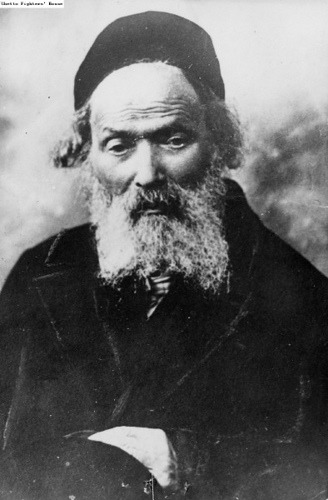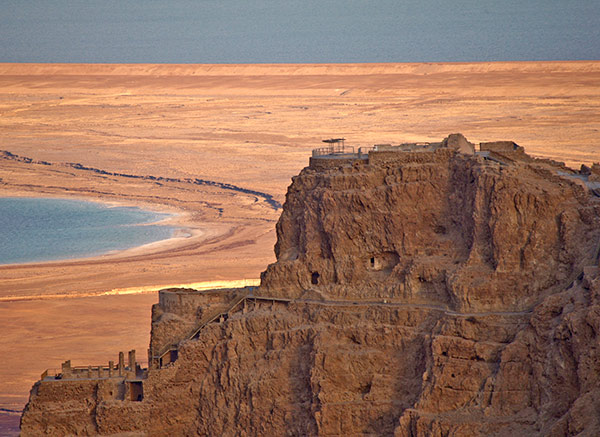noted from FR
From WSJ Opinion Journal
HOUSES OF WORSHIP -The Decline of the Sabbath
Less praying, more working and playing.
BY MOLLIE ZIEGLER HEMINGWAY
Friday, June 15, 2007 12:01 a.m. EDT
For many Americans, Sunday is unlike any other day of the week. They spend its luxurious hours curled up in bed with the paper, meeting friends for brunch, working off hangovers, watching golf, running errands and preparing themselves for the workweek ahead. But Sunday is also, for many, the Sabbath--a special day for religious reasons. Not that you would notice.
"Remember the Sabbath day, to keep it holy," we are told in Exodus. Of all the gifts Jews gave the world, that of a weekly day of rest is certainly one to be cherished. And yet the Sabbath is now marked more by its neglect than its keeping. Or so says Christopher Ringwald in his new book "A Day Apart."
Mr. Ringwald notes that in the late 18th century, states banned entertainment, hunting or unnecessary travel on Sundays. The Second Great Awakening in the early 1800s spread Sabbath-keeping to the frontiers. Church membership doubled, Sunday schools proliferated and long sermons dominated the morning. It was unthinkable that the general store would remain open on the Sabbath. "Nothing strikes a foreigner on his arrival in America more forcibly than the regard paid to the Sabbath," Alexis de Tocqueville wrote in 1840. "Not only have all ceased to work, but they appear to have ceased to exist." The so-called blue laws that were a part of American culture--closing down bars and preventing the sale of liquor on Sunday--were commonplace well into the 20th century.
But the Sabbath today is at odds with commercial culture. To generalize shamelessly from personal experience: My brother-in-law, who manages a national retail store in Colorado, works on Sundays, following church. He was shocked recently to find out he is now required to open the store on Easter Sunday. Easter used to be the one Sunday each year when retail stores closed. No longer.
Of course, debates over the proper observance of the Sabbath date back to ancient times. One early conflict between Jesus and his fellow Jews was over what it meant to keep the Sabbath. Jesus' failure to hew to ever-expanding rules--he healed the sick on the Sabbath--angered the Pharisees.
Not that Christians later fell into easy agreement about Sabbath conduct. In another new book, "Sunday: A History of the First Day From Babylonia to the Super Bowl," Craig Harline shows how all sorts of complicated rules governing work, travel, sex and leisure grew up around the Sabbath in medieval Europe, creating a tangle of proscriptions that had overwhelmed the day by the 14th century. One genre of church mural at the time, known as the "Sunday Christ," showed Jesus surrounded by tools of the fishing, carpentry and farming trades. Each ax, rake and fishing hook inflicted a fresh wound on the crucified Christ. The message was not lost on worshipers: Work on the Sabbath only added to Jesus' suffering.
Reformation leader Martin Luther resisted such Sabbath guilt, saying that the commandment was kept by daily worship and high regard for God's Word, not strict rules governing behavior. Discussing the Sabbath, he highlighted Paul's relief at being free from the demands of Jewish law. And yet from the 16th century to the modern era, a Sabbath consensus emerged. Christians were to keep Sunday as a day of rest and worship, and their governments supported this pious notion. The day of rest did not become secularized until very recently.
What happened? It is hard to say. Both Mr. Ringwald and Mr. Harline note that our religious practices are more and more isolated from the habits of the broader culture. Think only of the coarseness of the Internet, gossip rags and Hollywood fare in a country that claims 45% church attendance every Sunday: We live now on two tracks, a secular and a religious one, shuttling between them all too easily.
This Sabbath dissonance was evident even in the 1950s, Mr. Harline notes. More than 90% of American homes had a television, and some 37% were tuned to Sunday football.
"Sundays changed when the world changed," he writes. Stopping farming in the Middle Ages was easy. But to close restaurants, shut up amusement parks or clear the airwaves when Americans with money were trying to spend it that day was impossible.
The flip side to the prosperity we enjoy is that we have lost our day of rest for another day of consumption. The pace of commerce and technology provide unheard of options for ignoring family, religion and rest--not just on the Sabbath but every day of the week.
Ultimately, Mr. Ringwald would like to see the Sabbath restored to one track--if not a strictly religious one, then one not actively secular. Taking a day of rest protects us from ourselves, he writes, from "our urge to always be doing, improving, earning, getting, spending, having, consuming--all the ways we hurry on toward death."
Ms. Hemingway is a writer in Washington.
|


Why am I not surprised at the dread in the voice of the writer? The first thing that must be accepted to understand a discussion about the differences between Shabbos Kodesh and l'havdil the Xtian Sabbath is that the Jews were commanded by HaShem directly, openly, and during His one time only mass revelation at Har Sinai to "remember" the Shabbos, "l'kadsho" to keep it holy.
ORT Navigating the Bible II
Zachor et-yom haShabat lekadsho.
Sheshet yamim ta'avod ve'asita chol-melachtecha.
Veyom hashvi'i Shabat l'Adonay Eloheycha lo ta'aseh chol-melachah atah uvincha-uvitecha avdecha va'amatcha uvehemtecha vegercha asher bish'areycha.
Ki sheshet-yamim asah Adonay et-hashamayim ve'et-ha'arets et-hayam ve'et-kol-asher-bam vayanach bayom hashvi'i al-ken berach Adonay et-yom haShabat vayekadeshehu.



Except above where the text begins the 5th Commandment (Kabed es Avicha), what we have is the best definition of Sabbath available to date. It comes directly out of the Sefer Shmos, (Book of Exodus) and is Hashem's command to the JEWS.
Shabbos is neither an option for the interested nor a burden for the less connected, dreaded for its coming and gleeful as it passes. Shabbos is the ultimate Jewish holiday. And even though many people call Shabbos the Jews gift to the world, this is clearly mis-understood. Gentiles are not now nor have ever been obligated in Shabbos which is why in classical Xtian text you find references to burdensome laws of Rabbis, or as the article calls it "ever-expanding rules". It isn't the rules that "expand" but life that expands. It is the job of the Rabbonim to understand the changing world and apply this knowledge to a new set of parameters meaning for the Jewish people, new or different practices based upon those changes. This is so that Shabbos is not maligned in the march of progress. The laws, however are basically the same.
And as for healing, this is an NT mis-read. If as Xtians believe Yushka (l'havdil) and G-d are the same, there is not any conflict. 1) Xtians are not obligated in Shabbos (oh yea there weren't any then, whoops) 2) G-d does what G-d chooses. For Jews who believe that HaShem has no form and doesn't need a body to accomplish anything (l'havdil) there is a problem with "unnecessary" medical procedures on Shabbos performed by Jews on Jews or non-Jews. All Jews should understand that Torah forbids a Jew to REFRAIN FROM saving a life on Shabbos, no matter what law must be broken in order to do so. These NT stories essentially are meaningless.
"...berach Adonay et-yom haShabat vayekadeshehu"
HaShem sanctified the 7th day after completing His work. You, Mr. or Ms. Jew are obligated in what G-d commanded you. You were brought out of Egypt. You were made holy and therefore subject to sanctification. The Xtians, on the other hand adopted a Sabbath/Sunday. This is an entirely different thing. It is not a "sanctification" but a "day or rest". Rest? This is done on the couch. Truthfully, since Sunday is Yom Rishon, it does of course according to Torah and in a spiritual sense retain the original essence of the first yom rishon, a strong work day.
Sanctification? This is done by prayer, ritual, learning, teaching, seuda, singing, and being fully Jewish, mein olam haba. Okay, shluffing too, but just a little. The main difference is a physical resting vs. a spiritual elevation and rejuvenation. Taking time out of the schedule without a blackberry to spend with your Creator/parent to be together and demonstrate an unyielding commitment (a word requiring 2 forces or entities) is what Shabbos is about. Yes, it is said HaShem is pleased by Jewish observance of Shabbos as is true with all mitzvos. How does G-d interpret Sabbath on Sunday? If Xtian's were to bind themselves to Torah/bible, then is this not an affront to G-d? Did he not specify what he meant by Shabbos, i.e., 7th day, no melacha, menucha, stopping creative efforts? At least the Jews who do not observe Shabbos yet in the best possible way at least acknowledge that Shabbos is Shabbos. They may argue about what that means, but as far as I know, no Jew has ever tried to define Shabbos as Wednesday?
So, where does this leave honest Xtian Sabbath followers? I am not sure. Shabbos cannot be removed from Yom Shvi'i and Sunday can't be turned into Yom Shvi'i. Where, I suppose it leaves us back at the beginning. Only the Jews are obligated in Shabbos. Xtianity seeking to create a day of rest is probably a good thing. But expecting followers, who have a choice to observe or not observe (unless Xtian churches or congregations can strengthen the non-observance penalty) to fall inline and understand what it is they are supposed to be resting for and from, then I certainly would not be waiting in the lobby for the mass rush of people. Only Xtianity can define what it is and what a good Xtian is. But I am not sure that sabbath observance is a good measure.






























































0 comments:
Post a Comment